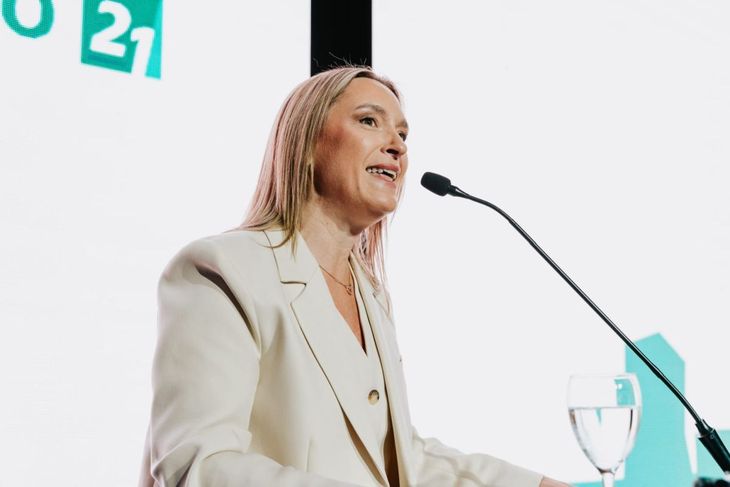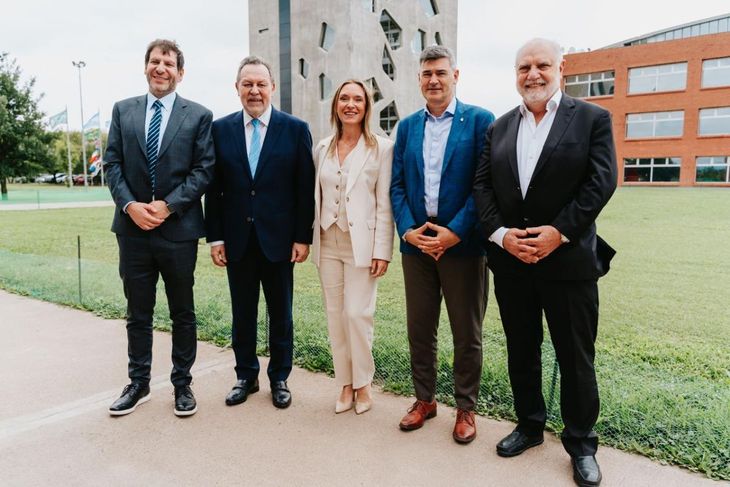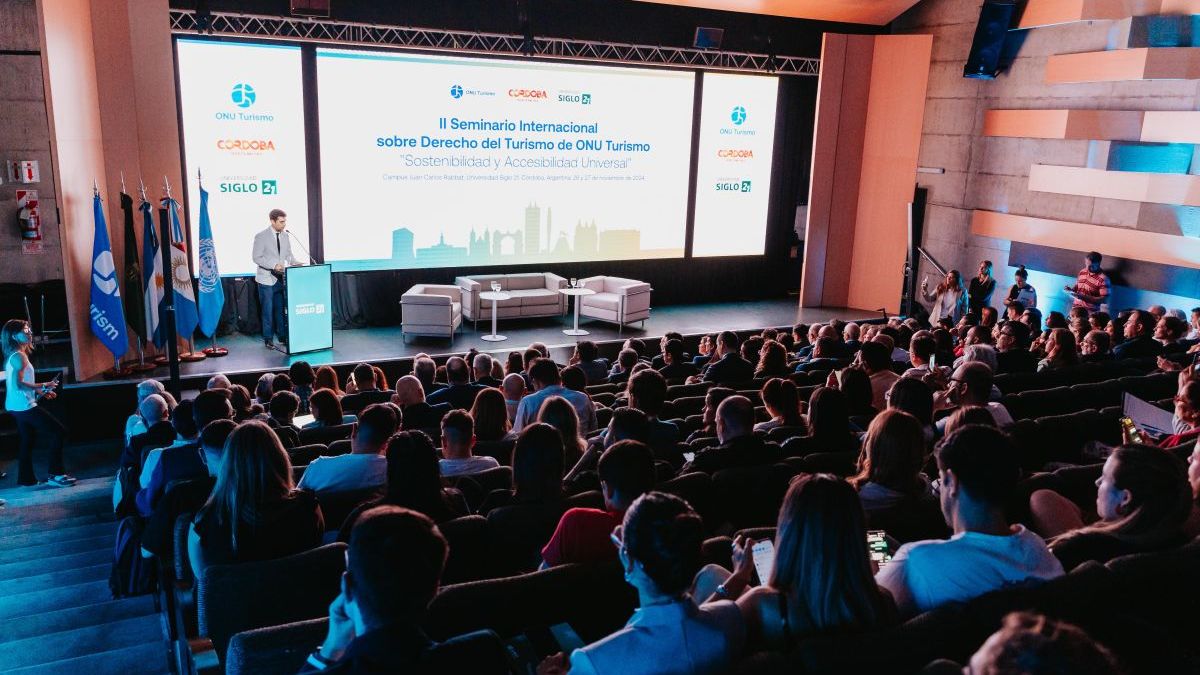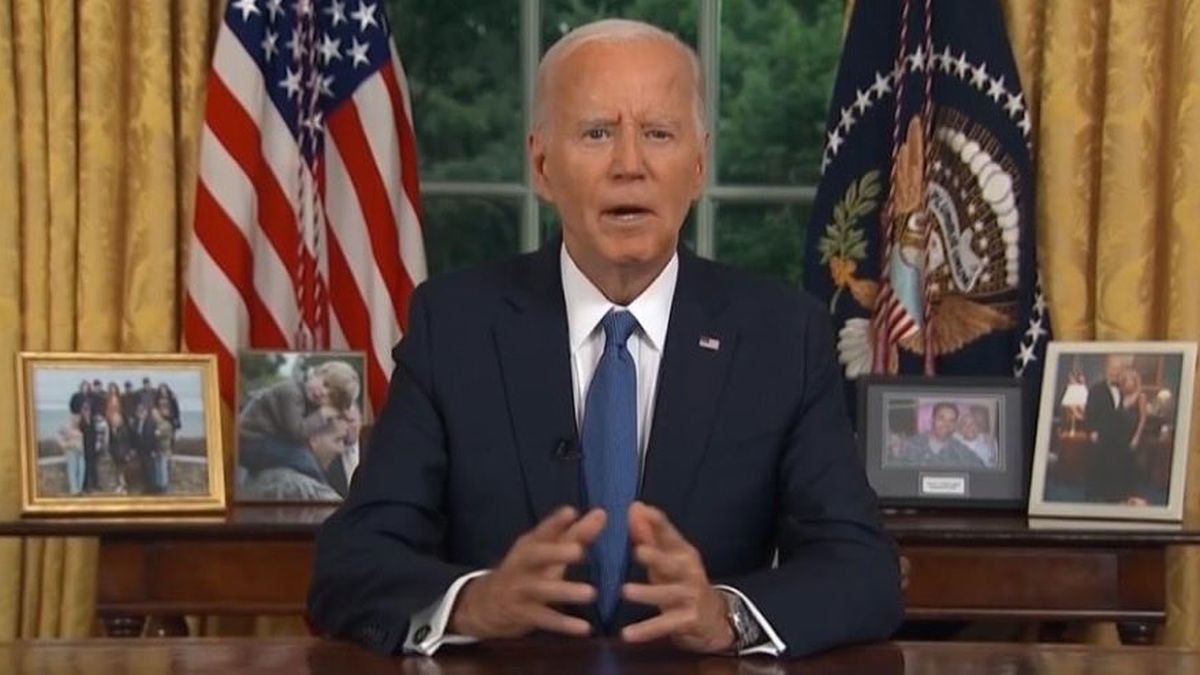Cordova was the headquarters of II International Seminar on Tourism Law, organized by UN Tourism in collaboration with 21st Century University and the Córdoba Tourism Agencywhich was developed on November 26 and 27. The event featured the participation of prominent national and international experts, and sought promote tourism as an engine of economic growth, inclusive development and social and environmental sustainability, all issues in which Law plays a key role.
Under the premise of enhancing the capacity of actors in the sector to incorporate sustainability and accessibility into tourism legislation and practices, the Mediterranean province received representatives of the United Nations specialized agency in charge of promoting responsible, sustainable and accessible tourism. for everyone.
The opening of the II International Seminar on Tourism Law was led by Dario CapitaniPresident of the Córdoba Tourism Agency; María Belén MendéVice President of the 21st Century University Foundation; Dr. Eduardo BittarPresident of the Córdoba Bar Association; Daniel PasseriniMayor of the City of Córdoba and Gustavo SantosRegional Director for the Americas of UN Tourism.
During his speech, Santos recalled that “from the experience of the pandemic we discovered that we need to generate global tools for Tourism: “This is how the International Code for the Protection of Tourists, the Observatory of Tourism Law for Latin America and the Caribbean and this space were born, in which many of those who are present today, from different countries around the world, worked.”
“We are convinced that we need a global response to future global problems; that the Law must be able to accompany the increasingly rapid and dynamic evolution of humanity, and that integration to understand ourselves as an ecosystem is a collective challenge,” he highlighted.
Gustavo Santos.jpg
Gustavo Santos, Regional Director for the Americas of UN Tourism.
At the event, it was highlighted the growing recognition of sustainable, inclusive and accessible tourism in the policies of various countries, as well as the limitations of current regulations that tend to address sustainability in a fragmented way. The panels emphasized the need for a comprehensive legal framework that considers environmental, economic and social aspects, guaranteeing balanced and long-term tourism development.
Representatives of organizations such as the Inter-American Development Bank (IDB), the United Nations Office of Legal Affairs, UNESCO, ONCE Foundation, delegations from the Americas, such as Europe and Africa, as well as academic experts, representatives of the private sector and local authorities.
Universal accessibility, good practices and legislation on sustainable tourism in the Americas, care for the environment and the preservation of cultural and natural heritage were some of the topics that were addressed during the two days of the Seminar.. At the same time, success stories were presented such as those of Uruguay, Ecuador, Colombia, Cuba, Costa Rica and Peru by tourism authorities of each country.
María Belén Mendé.jpg

María Belén Mendé, Vice President of the 21st Century University Foundation
Likewise, through a high-level multilateral panel, the pioneering and leading role of international organizations such as the United Nations, UNESCO and UN Tourism in the development and harmonization of norms and standards on the subject was analyzed.
The closing ceremony of the Seminar was in charge of Gustavo Santos; Juan Carlos RabbatFounder and President of the Siglo 21 University, and Alicia GomezDirector of the Department of Legal Affairs and International Standards of UN Tourism.
Exchange of experiences
After the event, the Secretary General of Academia and Development of Universidad Siglo 21, Leonardo Medranohighlighted that the II International Seminar on Tourism Law was “a key space for the exchange of experiences and tools to overcome challenges in tourism, in addition to enhancing the opportunities generated by the sector through sustainable and responsible development.”
“The participation of actors from the private and public spheres was essential to promote legal frameworks aimed at the sustainable development of tourism at the national, regional and international level,” he explained.
21st century 2.jpg

At the same time, Medrano highlighted that the exchange of good practices and lessons learned about sustainability in tourism legislation allowed us to learn about exemplary cases such as those of Colombia, Costa Rica, Cuba, Ecuador and Uruguay. He also highlighted the “participation of organizations such as the Inter-American Development Bank (IDB), the Development Bank of Latin America and the Caribbean (CAF), ONCE Foundation, along with ministers of Tourism, government authorities and academic leaders from various countries.”
In that sense, he assured that “it was essential to promote collaboration and build bridges between countries in the region for more inclusive, accessible and responsible tourism at a global level.”
Regarding the axis of the seminar, the Secretary General of Academia and Development of Universidad Siglo 21 mentioned that “Recognizing Tourism Law is essential to guarantee sustainable development of the sector, focused on accessibility, adopting good practices and promoting corporate social responsibility in addition to the preservation of the environment and cultural heritage.” And he added: “It is a key instrument to generate a solid legal framework that supports and guides the development of tourism in a way that benefits all interested parties, focused on economic and social development.”
Daniel Paserini.jpg

The mayor of the city of Córdoba, Daniel Paserini.
Finally, Medrano highlighted that for Universidad Siglo 21 it is a priority to carry out spaces that promote international exchange and collaboration, in addition to innovation for development in both the private and public sectors. “As an educational institution, our commitment is to contribute to the evolution of the tourism sector through the generation of knowledge and the training of professionals capable of promoting and enhancing tourism aligned with global needs and challenges,” he concluded.
In its second edition, this event is consolidated as a platform for meeting and exchange to promote the recognition of Tourism Law as its own legal discipline. In this way, the discussion tables and panels of the event demonstrated the commitment of UN Tourism, Universidad Siglo 21 and the Córdoba Tourism Agency to the promotion of positive changes that generate impact in the sector, with a focus on collaboration between the sector. public and private, and academia.
Source: Ambito
I am a 24-year-old writer and journalist who has been working in the news industry for the past two years. I write primarily about market news, so if you’re looking for insights into what’s going on in the stock market or economic indicators, you’ve come to the right place. I also dabble in writing articles on lifestyle trends and pop culture news.




